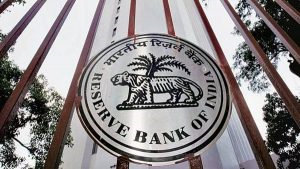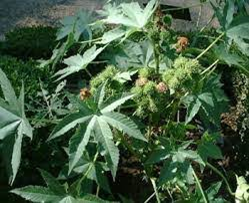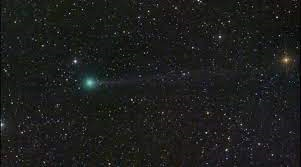Daily News Analysis.
Central Bank Digital Currency: RBI
News: The Governor of the Reserve Bank of India (RBI) has emphasized the potential of E-rupee, also known as Central Bank Digital Currency (CBDC), to increase the effectiveness of cross-border payments.
- RBI is gradually broadening the participation of its CBDC experiments to new banks, localities, types of use cases, and audiences.
- CBDCs are a digital version of paper money that are issued and backed by a central bank, unlike cryptocurrencies that function in an unregulated environment.
- It is interchangeable one-to-one with fiat currency and is the same as fiat currency.
- A national currency that is not linked to the price of a goods like gold or silver is known as a fiat currency.
- Wallets supported by blockchain can be used to transact using the digital fiat currency, or CBDC.
- Despite being directly inspired by Bitcoin, the idea of CBDCs is distinct from decentralized virtual currencies and crypto assets, which are not issued by the government and lack the status of “legal tender.”
- The major goal is to reduce risks and expenses associated with handling physical money, including those associated with phasing out dirty notes, transportation, insurance, and logistics.
Project Naman: Indian Army

News: Recently, the Indian Army unveiled “Project Naman,” which will see the establishment of facilitation and grievance redressal centers for veterans and the families of fallen servicemen.
- The facilitation and grievance redressal facilities for veterans and the family members of fallen soldiers will be established as part of Project Naman.
- Delhi Cantonment will house the first such facility. A Common Service Centre will be located in “Naman,” which will help veterans and their families.
- It will provide all government-to-customer services and make it easier for veterans, their kin, and their dependents to update their pensioner accounts on the SPARSH portal.
- The Ministry of Defence is implementing the SPARSH portal to meet the requirements for pension sanction and payout for members of the Army, Navy, Air Force, and Defence Civilians.
- Through this portal, which will record and maintain a complete history of events and entitlements for the pensioner from the date of the start of the pension to the date of the cessation of the pension due to his/her last eligible beneficiary.
- The Defense Pensioner will be given a completely transparent view of his pension account. The Principal Controller of Defence Accounts (Pensions), who works for the Defence Accounts Department, will oversee the operation of this system.
Caribbean False Mussel: Report
News: According to a recent assessment from the Intergovernmental Platform on Biodiversity and Ecosystem Services (IPBES), the native clam and oyster populations in Kerala are being wiped out by the introduction of the Caribbean false mussel (Mytilopsis sallei), an invasive species.
- Original to the Atlantic and Pacific coasts of South and Central America is the Caribbean false mussel. Ballast waters, or the seawater that ships carry inside for greater stability, may have allowed it to reach the Indian coast.
- Smaller fishing boats may then have disseminated it to the estuaries. This invasive species has colonized estuaries from Kasaragod to Thiruvananthapuram. Additionally, it has begun to have an impact on Kerala’s mussel aquaculture facilities.
- It has a high rate of reproduction, is quite tolerant, and can even live in freshwater. They significantly replace our mussels and develop in settings that are similar to those where they do.
- On hard surfaces like logs, stones, shells, and man-made buildings, it can be seen growing.
IPBES
- It is a separate intergovernmental organization. 94 Governments founded it in Panama City in April 2012.
- For the conservation and sustainable use of biodiversity, long-term human well-being, and sustainable development, it seeks to increase the science-policy interaction for ecosystem services.
- It is not a part of the UN. However, IPBES receives secretariat services from the United Nations Environment Programme (UNEP).
- Headquarters: Germany’s Bonn.
One-Hour Trade Settlement: SEBI

News: The Securities and Exchange Board of India (SEBI), which had previously stated in July that it was striving to introduce real-time trade settlement, now intends to implement one-hour trade settlement first.
- If an investor sells a share, the proceeds will be credited to their account in an hour, and the buyer will receive the shares in their demat account in an hour. This is known as a one-hour settlement.
- The transfer of monies and securities on the settlement date is a two-way transaction called settlement.
- When purchased stocks from a listed business are delivered to the buyer and the seller receives payment, a transaction settlement is said to be complete.
- Because of the present T+1 cycle, trade-related settlements take place a day or 24 hours after the transactions themselves.
- In January 2023, the switch to the T+1 cycle became official. India started the T+1 settlement cycle in top-listed securities after China, becoming the second nation in the world to do so.
- A Demat Account, also known as a Dematerialized Account, offers the option of keeping shares and other securities electronically.
- Shares are purchased and maintained in a Demat Account during online trading, making it simple for consumers to transact.
- It houses all of a person’s investments in bonds, mutual funds, exchange-traded funds, shares, and government securities in one location.
Comet Nishimura
News: According to NASA, there is a strong chance that this week, Comet Nishimura will be visible to the unaided eye.
- The comet, formally known as C/2023 P1 Nishimura, has since grown brighter as it continued on its course through the inner solar system.
- Even if the comet is visible, it will only be possible to see it early before sunrise or late before dusk because of its angular proximity to the Sun.
- Currently, the comet is visible in the constellation Leo. Once every 435 years, it completes an orbit around the Sun.
- Comets are solar system-orbiting snowballs made of frozen gasses, rock, and dust. They are relics of the solar system’s creation.
- They are typically between a few and tens of km wide. However, as they approach the Sun, they spit out gasses and dust, which are what give them their infamous tails.






